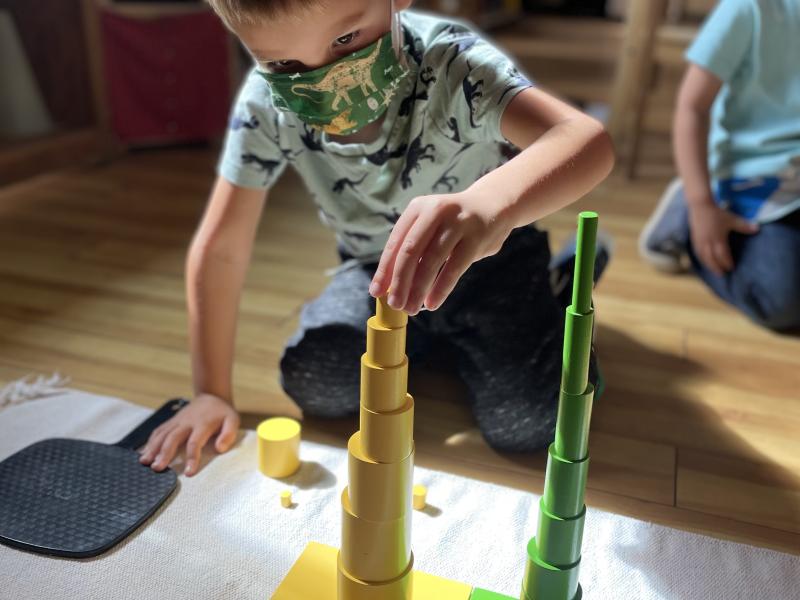As most of you already know, I have two "real" children (both girls, 10 and 11) who are a little older than my Grasshopper children. I spend quite a bit of my free time with their friends and their friend's parents. It's interesting how many of the conversations I have with other parents are in regards to what is the "norm" for their child. I have realized over the years that parents can be very competitive, me included when it comes to child rearing. We constantly compare our child's development to the "other" kids' progress or that of their sibling. We can be very possessive about our preferred child-raising techniques and tend to be sensitive when different styles of upbringing are offered. We worry excessively if our children aren't meeting whatever milestones are considered to be the norm and are quick to use labels for why a child isn't precisely "on track." This is even common for parents of college-bound children who are quickly becoming adults themselves.
All parenting styles are infinitely different. Some are hands-on, some are hands-off, some loving discipline, some prefer freedom. There is a never-ending variety of child-raising philosophies out there, so it's no wonder it feels like a giant competition all the time - to see whose kid turns out "best."
All this competitiveness is irrelevant because there's no way every child can be assessed by the same criteria, nor will every child respond identically to the same upbringing. As any parent of multiple children knows, you might use the same technique for raising all of your kids, but because they have such different personalities, the results will be entirely different. Comparison - and the underlying assumption that all kids are the same and can be compared - is pointless.
So what do you do to combat this? We need to slow down, stop comparing, and wait. This word, "wait," is used too rarely in today's frenetic lifestyle. Parents don't wait for their babies and children often enough, since we're always in a mad rush for them to achieve, perform, and do us proud.
By waiting for children to accomplish things in their own time, we acknowledge that each child has their own "unique developmental timetable." Here are some different ways in which we can wait for our children:
-- Wait for development - Readiness is when they do it. (Children read when they are ready, they walk when they are ready, they poop on the toilet when they are ready)
-- Wait before interrupting - Allow your child to become an independent self-learner.
-- Wait for problem-solving - Children are capable of doing many things on their own.
-- Wait for discovery - "When you teach a child something, you take away forever his chance of discovering it for himself." (Jean Paiget)
-- Wait for feelings to be expressed. Allow the child to process them before we react to our own emotions.
If more parents embraced waiting as an inherent part of raising well-adjusted children, much of the competitiveness would disappear and the whole experience would become a lot more pleasurable for everyone.
-Grasshopper Teacher


